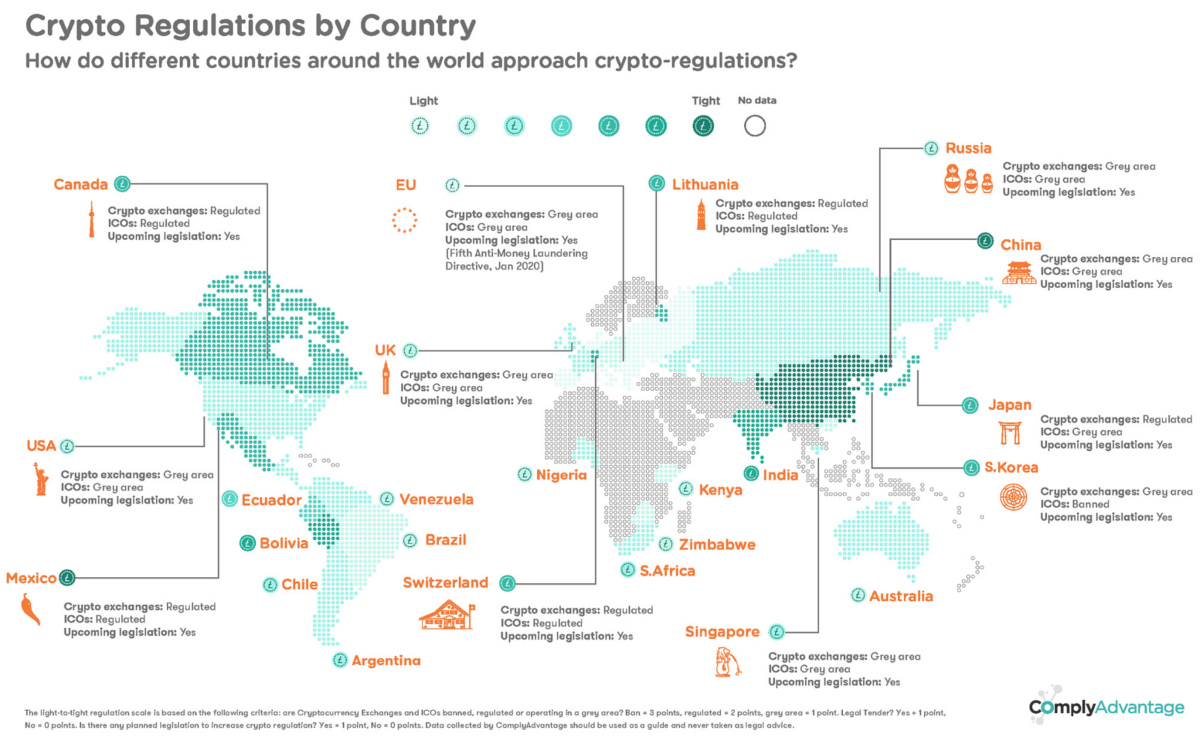Navigating Crypto Regulations Around the World is a crucial endeavor for anyone involved in the burgeoning cryptocurrency market. As digital currencies continue to gain traction globally, understanding the varied regulatory landscapes becomes essential for compliance and strategic planning. From the nuances of local laws to international guidelines, this exploration sheds light on how different jurisdictions approach the regulation of cryptocurrencies.
In this discussion, we’ll break down the key elements of crypto regulations, including their historical context, the influence of technology, and the cultural dynamics that shape these laws. We’ll also consider the challenges faced by investors and businesses as they navigate these complex waters in an ever-evolving digital economy.
In today’s fast-paced world, the importance of effective communication cannot be overstated. This extends beyond just verbal interactions; it encompasses written communication as well. Whether you’re crafting an email to a colleague or penning an article for a blog, the way you present your ideas can significantly impact the message’s clarity and reception.The cornerstone of effective communication is the understanding of your audience.
Knowing who you are addressing allows you to tailor your language, tone, and content to resonate with them. For instance, when writing for a professional audience, utilizing formal language and industry-specific terminology can enhance your credibility. Conversely, if the target audience is more casual, employing a friendly and relatable tone can foster engagement.In the realm of written communication, clarity is paramount.
It’s essential to express your ideas in a straightforward manner, avoiding complex jargon unless it’s necessary for your audience’s understanding. This approach not only aids comprehension but also ensures that your message is conveyed without ambiguity. Make it a habit to proofread your work before sending it out; this simple step can eliminate spelling or grammatical errors that might detract from your professionalism.Additionally, structuring your content effectively can make a significant difference.
A well-organized piece allows readers to follow your argument or narrative seamlessly. Start with a strong introduction that presents the main idea or thesis, followed by body paragraphs that delve into supporting points, and conclude with a summary that reinforces your message. Utilizing headings and bullet points can also break up the text, making it more digestible and visually appealing.Another vital aspect of written communication is the art of persuasion.
Whether you’re trying to convince a client to choose your service or encourage your team to adopt a new strategy, employing persuasive techniques can enhance the effectiveness of your argument. This often involves presenting clear reasoning, supported by data and examples, and addressing potential counterarguments. By anticipating the reader’s questions or concerns and responding to them proactively, you can build trust and credibility.Moreover, emotional intelligence plays a crucial role in written communication.
Recognizing and addressing the emotional context of your message can significantly impact how it is perceived. For instance, if you’re delivering constructive criticism, framing your feedback positively and empathetically can help the recipient receive it more openly. Acknowledging the feelings and perspectives of your audience demonstrates respect and can foster a more collaborative atmosphere.In the digital age, the medium through which we communicate also matters.
The rise of social media and instant messaging has transformed how we engage with one another. While these platforms offer convenience, they also come with their own set of challenges. The brevity of posts and messages can sometimes lead to misunderstandings, as tone and intent can easily be misinterpreted. As such, it’s essential to be mindful of how your messages may be perceived in these formats.Furthermore, the integration of visuals can enhance written communication.
Infographics, images, and videos can complement your text and provide additional context, making your message more engaging and memorable. However, it’s important to ensure that these elements are relevant and add value to your content rather than simply serving as decoration.Feedback is another crucial component of effective communication. Encouraging open dialogue and being receptive to input can help you refine your writing and approach.
Constructive criticism can provide valuable insights into how your communication is perceived, allowing you to improve continuously. Additionally, seeking feedback from diverse perspectives can broaden your understanding and enhance your ability to connect with various audiences.As you navigate the complexities of written communication, remember that practice makes perfect. The more you write, the more you’ll develop your unique voice and style.
Experimenting with different formats and tones can help you discover what works best for you and your audience. Whether it’s through blogging, journaling, or professional correspondence, cultivating your writing skills is an ongoing journey.In conclusion, effective written communication is a multifaceted skill that requires attention to detail, empathy, and a willingness to adapt. By understanding your audience, maintaining clarity, structuring your content thoughtfully, and integrating persuasive techniques, you can enhance your ability to connect with others through writing.
Remember the importance of emotional intelligence and the impact of the medium through which you communicate. As you continue to develop this essential skill, remain open to feedback and practice regularly to refine your voice. Ultimately, strong written communication can pave the way for meaningful connections and successful collaborations in both personal and professional contexts.

FAQ Resource: Navigating Crypto Regulations Around The World
What are the main factors influencing crypto regulations?
Key factors include the technological advancements in blockchain, market stability concerns, and the need for consumer protection.
How do regulations vary between countries?
Each country has its approach based on economic conditions, political climate, and cultural attitudes towards technology and finance.
What are the potential consequences of non-compliance with crypto regulations?
Non-compliance can lead to severe penalties, including fines, legal action, and loss of business licenses.
Can regulations impact the innovation within the crypto space?
Yes, regulations can either foster innovation by providing a framework or stifle it by imposing excessive restrictions.
What role do international organizations play in crypto regulations?
International organizations help harmonize regulations and promote cooperation between countries to manage cross-border crypto activities.



